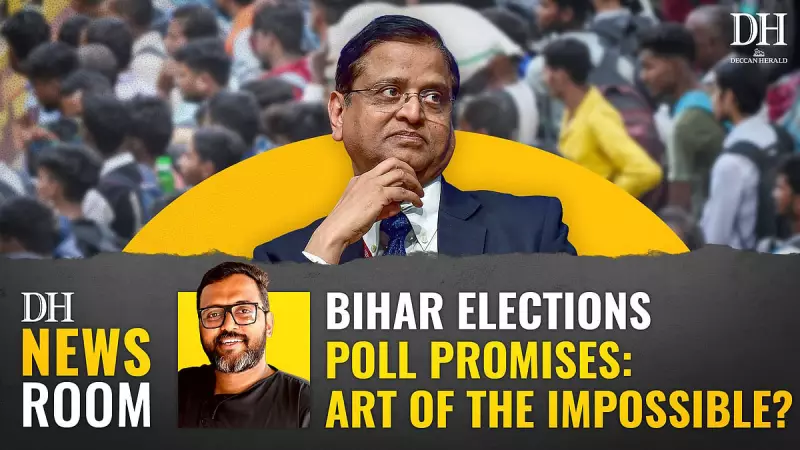
In a startling revelation that's sending shockwaves through political circles, former Finance Secretary Subhash Garg has launched a blistering attack on the election promises made by both the ruling NDA and opposition India bloc, accusing them of systematically misleading the Indian electorate.
A Voice of Financial Authority Speaks Out
Subhash Garg, who served as India's Finance Secretary until 2019, brings unprecedented credibility to his critique of the competing political manifestos. His insider perspective reveals what he calls "financial irresponsibility" on a massive scale from both sides of the political divide.
The Core Allegations
Garg's analysis identifies several concerning patterns in the election promises:
- Fiscally Unsustainable Commitments: Both alliances have made promises that would severely strain India's financial resources
- Lack of Transparency: Critical details about funding mechanisms and implementation timelines remain conspicuously absent
- Economic Reality Gap: Proposals appear disconnected from India's current economic constraints and global challenges
Specific Concerns About Major Promises
The former bureaucrat expressed particular concern about several high-profile commitments that have dominated campaign rhetoric. According to his assessment, these proposals risk creating long-term economic damage while offering short-term political gains.
"When you examine the fine print, or rather the lack thereof, it becomes clear that these are designed to win votes rather than build sustainable economic growth," Garg stated in his detailed analysis.
The Broader Implications for Indian Democracy
This isn't just about economic policy—Garg suggests this pattern of overpromising undermines the very foundation of democratic accountability. Voters are being presented with attractive but ultimately undeliverable visions of the future.
The timing of this critique is particularly significant, coming as India prepares for crucial phases of voting. Garg's non-partisan position lends weight to his warnings about the consequences of embracing financially questionable policies.
A Call for Responsible Politics
Beyond the criticism, Garg's intervention serves as a powerful reminder of what responsible economic governance should entail. His perspective highlights the need for:
- Transparent costing of all major policy proposals
- Realistic assessment of implementation capabilities
- Honest dialogue with citizens about economic trade-offs
- Long-term thinking beyond electoral cycles
As the political battle intensifies, Garg's sober assessment provides voters with crucial context to evaluate competing claims. His message resonates particularly strongly among economic experts and informed citizens concerned about India's fiscal health.






